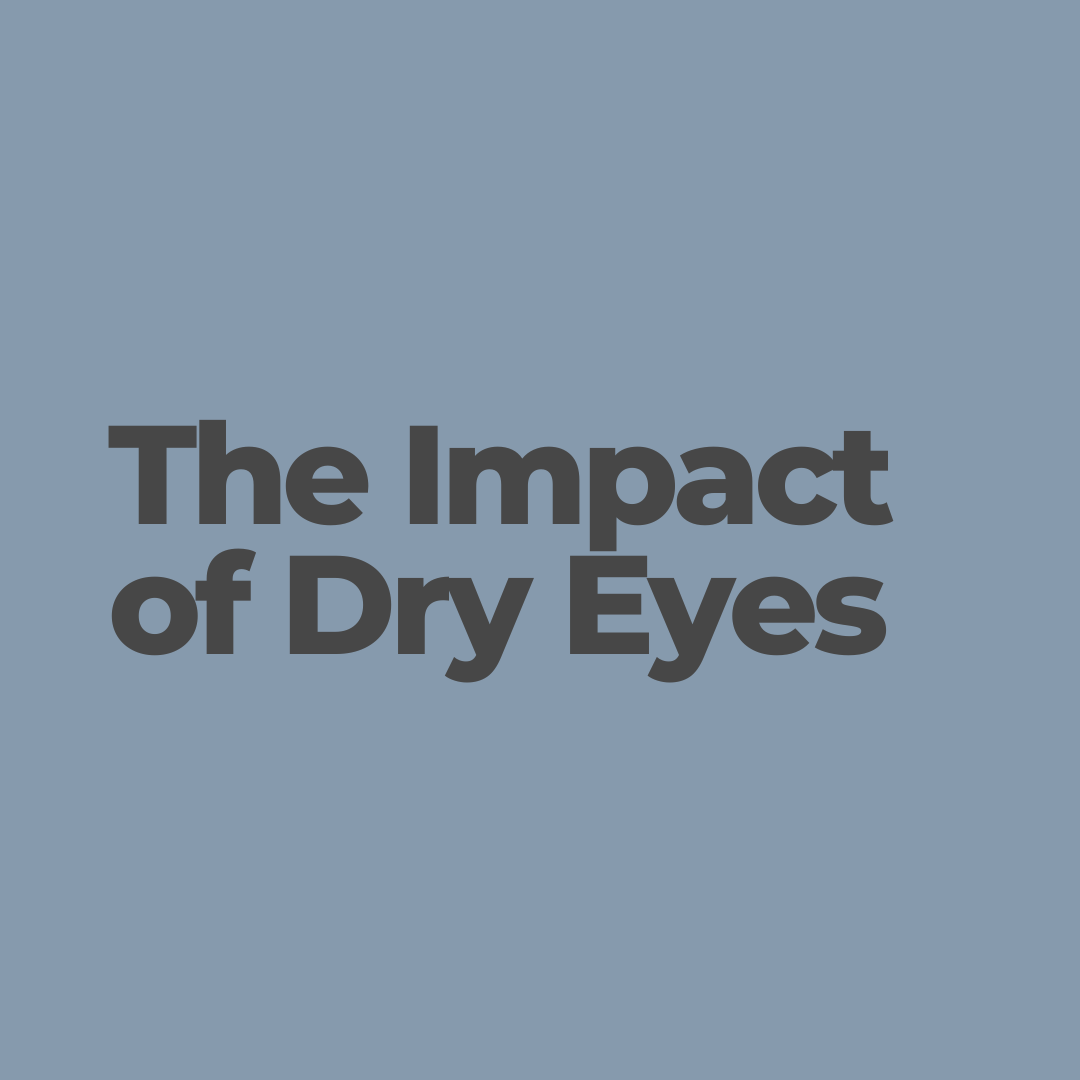Impact of Dry Eyes
Dry eyes can cause permanent damage to the eyes, leading to infections, scarring, conjunctivitis, and irregular healing of the eyes. It can also cause a significant impact on the daily activities of individuals, leaving them feeling hopeless and frustrated. Dry eye patients are more prone to depression and anxiety, which results in decreased quality of life.
Social Impact
Dry eyes can make individuals feel anxious and nervous about going out with friends, especially if the activity is outdoors or involves watching TV or movies. Factors such as low humidity, high wind, intense sunlight, and air pollution can worsen the symptoms of dry eyes, leaving friends and family members unaware of the extent to which it affects an individual's quality of life.
Dry eye disease can create anxiety in social situations. Applying eye drops in public venues can be challenging and embarrassing. Friends may notice excessive blinking and difficulty maintaining eye contact. Outdoor events expose eyes to triggers. Declining invitations strains relationships.
Depression and Anxiety
Dry eye patients have a significantly higher risk of depression compared to those without dry eyes, according to a study [REF]. Constant dry eye symptoms can be mentally taxing, causing distraction and blurry vision that interferes with work and social life. Depression symptoms include hopelessness, helplessness, sleep and appetite problems, decreased concentration, low energy, and restlessness.
If you're experiencing these symptoms, seeking professional help, therapy, or selective serotonin reuptake inhibitors (SSRIs) may be recommended. It's important to discuss dry eye treatment with an eye doctor before or while using antidepressants, as they can be associated with dry eye symptoms.
People with dry eye disease also have a higher likelihood of anxiety compared to those without it [REF]. The constant worry about dry eye symptoms and the lack of control can lead to anxiety in social situations. Anxiety disorder is characterized by restlessness, nervousness, and excessive worrying.
While studies show correlations rather than causations between dry eye disease, depression, and anxiety, these findings can help identify related symptoms and guide treatment decisions.

Work Productivity
Dry eye disease poses challenges in the workplace, particularly when working on computers. Constant screen time, small print, blurry vision, and reduced blinking cause eye discomfort and difficulty focusing. Presentations and colleagues' perception may be affected, leading to decreased work performance. The impact of dry eye on productivity is often misunderstood [REF].
Sleep
Nearly 50% of patients with dry eyes experience poor sleep [REF]. Quality sleep is crucial for overall health, and inadequate sleep is linked to various physical and psychological conditions. Dry eye disease incidence is higher in people with poor sleep, and vice versa. Nocturnal lagophthalmos, environmental factors, and sleep apnea can worsen dry eye symptoms and disrupt sleep.





